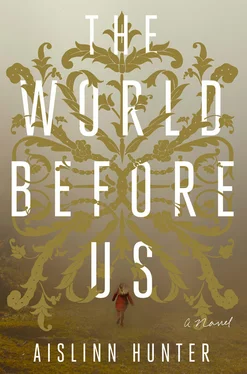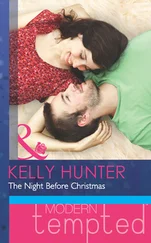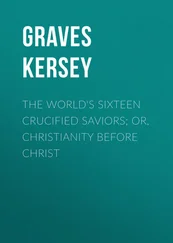The one we call the idiot sighed and said wearily, “Listen. Matter is equivalent to energy, it cannot be lost; it can only be transferred. The physical system, endowed as it is with an unobserved quantity—”
The theologian clapped his hands together. “Who’s up for today’s pub quiz?”
“I am!” Cat said.
“Fine. Ready? Tell us something you like. First thing that springs to mind.”
“Cats,” she shouted. This was her usual answer.
“Excellent. Anyone else?”
“Chopin!”
“Good, next?”
“Those white sweets with green inside. What is that?”
“Mint,” we said.
“Anyone else?”
Beside us Jane lifted her glass and took a sip, wiped a daub of froth from her lip with her finger.
“Stout!” a gruff old voice shouted, a voice we rarely heard. And, happy for him, we cheered.
Duncan excuses himself to head to the bar and Jane stays where she is, at the edge of the gathering, the door that leads to the staff offices a quick twenty paces behind her. Some of the crowd are migrating to their seats and the music has become more sombre as if it is trying to lull the audience into a more attentive state of mind.
From where she is standing Jane can sometimes see Gareth’s head as he moves around the room shaking hands. He doesn’t have anyone with him, which means that William isn’t here yet. Twice Gareth has moved in the direction of the front door and Jane’s pulse has started racing — but in both instances he then steered toward another circle of people. The second group includes a tall redhead with a glint of diamonds on her neck, a woman who Jane realizes is Dr. Osborne, the science director William works with at the Natural History Museum. If Lewis had come, if Jane had let him, Dr. Osborne is exactly the kind of person he’d be interested in talking to. He’d have launched into some specialized topic with the doctor — phylogenies or evolutionary convergence — forgetting that it is his job to protect Jane.
What Jane remembers now about the day she met Lewis at The Lamb is how relieved she was to talk with him. He’d tossed his car keys onto the table and leaned down to kiss her on the cheek, his face smelling soapy and clean.
“Sorry I’m late. Natalie just got back from yoga and I had the girls.”
Jane hadn’t seen him in two weeks and he had a new haircut, his brown locks cropped in a vaguely Roman style with a short horizontal fringe. “All hail Caesar,” she said as he flopped onto the bench.
He stretched his long legs out under the table. “You look good.”
Jane crossed her eyes and made a face. Lewis was playing nice. He always played nice — the little brother with the big house, lovely wife and brilliant kids, trying to bolster his cloistered sister.
After the first round of pints Lewis broached the situation with the Chester. He put his feet on the bench beside Jane and said, “Well, the upshot is, if the museum closes and you don’t find work right away, we’ll probably see you more. The girls miss their auntie.”
Jane mustered a smile, wanting him to believe she’d been sufficiently encouraged. “I was thinking I might go up to the cottage if I can’t find anything straight away, air the place out, go through mum’s things. We have to start thinking about selling it.”
“I know. But if we do— if —I’d still want to wait until the market’s better. You want the Merc?”
“If you can spare it.”
“Gran left it to both of us.” Lewis tapped his fingers on the table; clean white crescent moons.
“So how goes the—?” Jane narrowed her eyes trying to remember what bird he was on now.
“Pigeon?” he offered.
“Wasn’t it a starling?”
“We finished that weeks ago. Now we’re on to passenger pigeons.”
“Very sexy.” She plucked a petal off the daisy hanging out of the finger vase in front of her.
Lewis picked up his coaster and flung it at her head. “I don’t make fun of your narwhal horns.”
“It’s a narwhal tooth .”
“Actually, you’d like this pigeon. We got it frozen — from an American zoo of all places — so we’re working from that.”
“Aren’t passenger pigeons the ones that carry little scrolled-up messages in tubes around their neck?”
Lewis tilted his head, trying to decide if she was having him on. “Leg, Jane, around their leg . You’re thinking of the carrier pigeon — or a St. Bernard. The passenger is extinct. Ka-put. Gone.”
• • •
Most of us paid attention when Lewis spoke about work. We had enjoyed the field trip we took with Jane to his new lab outside the city, recalled the strange feeling we had watching computer screens in white rooms sequence creatures we only knew as corporeal things: bodies we saw flit through woods, peck across lawns, ones we saw wired in the cases of the museum. We were like the school kids who came to the Chester, overwhelmed and giddy; the theologian like an obstinate teacher asked to surrender control of his class. While the rest of us wandered in our little group from lab to lab, the theologian paced along a walkway that overlooked a clipped lawn bordered by tear-shaped hedges. In the atrium, Lewis had introduced Jane to a colleague called Shiro, who bowed stiffly before escorting her toward the aviary. His guided tour was rehearsed. He recited a string of statistics and findings, said that there were five international teams vying for the full genome patents of each avian species. “Every day is a race,” Shiro added, swiping his pass to access a room at the back of the facility, “and right now we are in second place.”
When the tour was done, Jane rejoined Lewis in the lab where his team was working. He pointed to a multicoloured pattern of squares running down his computer screen and said, “This is the kingfisher.”
One of us whistled three times and then flapped both arms in the air.
“ Whoosh! ” shouted another from a different computer, as if the bright pattern on that screen had suddenly swerved into a bird wing and the bird had lifted off.
“ Cheep cheep ,” said a third — for no reason we could discern — and soon we were all flitting about and cackling with laughter.
That day at The Lamb, listening to Lewis talk about his work, most of us felt happy. We liked to think about the afterlife of birds, the idea that a scroll of data on a computer might one day bring the passenger pigeon back into the world. The theologian was less enthused. He turned to those of us standing around the snug and said grittily, “I would like the record to show, once and for all, that birds, like all living things, are tangles of DNA and that we, to the best of our knowledge, are not , so we ought not to care about whether Lewis’s lab maps the genome of every living thing on the planet or makes toasters.”
“Atomus,” said the idiot, “from the Greek for indivisible. Matter being what it is, it is plausible that we—”
Cat yawned loudly. A ruckus broke out by the cigarette machine. The one who never speaks began waving his arms up and down vigorously.
“See?” John said. “We’re not so unlike Lewis’s pigeons.”
“I fail to see the analogy,” the theologian said stiffly.
The arm waving increased and the flurry of commotion drew closer. The daisy bobbed its head in its vase and Jane’s napkin drifted off her lap and onto the floor.
“Enough!” the theologian snapped.
“Who put you in charge?” John asked.
All of us stopped what we were doing except for the one flapping over by the wall. Jane picked up her napkin.
“Are you saying you ought to be in charge?”
“Maybe,” John said.
Читать дальше












